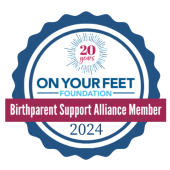How Long Does Home Study Take and What to Expect

The home study is one of the most important steps in the adoption process, and it’s often the one that raises the most questions. People want to know what to expect, how it works, and especially, how long does home study take. The answer depends on several factors, but the goal is always the same: to make sure every child is placed in a safe, stable, and supportive home.
This guide breaks it all down simply, with clear answers for adoptive families who may want to understand the process better. We’ll walk through how the home study works, what can speed it up, or slow it down, and how to feel more prepared throughout.
Why the Home Study Matters
The home study is an important and required part of the adoption process. It offers a thoughtful review of your home, lifestyle, and your ability to provide a safe, supportive environment for a child. Every state requires it, and Illinois is no exception. It helps ensure that children are placed in homes that meet their needs, physically, emotionally, and socially.
It’s also a chance for families to reflect, learn, and prepare for adoption with the support of trained professionals. Birth parents may also find comfort in knowing that prospective families are carefully screened. In this way, the home study helps build trust on all sides of the process.
How the Home Study Works
Before we answer “How long does home study take?”, it helps to understand what it actually involves. A home study is completed by a social worker with a licensed adoption agency. The focus is on ensuring a safe, prepared, and stable environment for a child.
Here are the main components:
- Background checks: Including fingerprinting, criminal history, and child abuse registry.
- Home visits: Visits with the social worker where the home is evaluated for safety and suitability.
- Interviews: With all household members to assess parenting style, relationships, background, and readiness.
- References: Letters from friends and family that speak to your character, relationship, and ability to parent.
- Documentation: Proof of income verification, health records, marital status, and more.
- Parenting education: Many agencies require pre-adoption training or parenting classes that help adoptive families prepare for the journey ahead.
This process can feel personal, and sometimes overwhelming, but it’s meant to be supportive, not invasive. Most social workers aim to build a strong connection with families, guiding them and helping them prepare for the future rather than judging them.
What Affects the Timeline
So, how long does home study take from start to finish? Once they are at the stage of meeting with their social worker, most families complete it within 8 to 12 weeks, but timelines can vary widely based on several key factors. Let’s break down the most common timing influences for a home study for adoption:
1. How quickly you submit paperwork
The faster you gather your documents, ID, medical forms, financial records, the sooner your home study can be completed.
2. Background check delays
Fingerprinting and government checks sometimes take longer than expected, especially if processing times are backlogged.
3. Scheduling your adoption home visit
If you have limited availability to meet with your social worker, this can slow things down. Each meeting with the social worker may require several hours of uninterrupted time. It’s important for adoptive families to make this a priority.
4. Your state or agency’s specific requirements
Illinois has clear guidelines, but each agency may have its own internal review steps. Ask for a timeline estimate early on so you know what to expect.
These factors can add or shave off weeks, depending on how prepared and responsive everyone is. Knowing them ahead of time can help you stay on track and avoid unnecessary delays.
How to Help Things Move Smoothly
You can’t control every delay, but there are ways to keep the process moving forward. These small steps can make a big difference in how long the home study process takes for your family.
- Start gathering paperwork as soon as you receive your checklist of required documents
- Work through your online training curriculum in a timely manner
- Schedule doctor’s appointments and fingerprinting right away
- Respond quickly to emails and requests from your social worker
- Prepare your home for your adoption home visit by addressing any safety concerns before your home inspection
These efforts show you’re serious, and they help your agency help you.
What to Expect During the Safety Assessment of the Home Visit
The safety assessment during your home visit is often the most anticipated part of the home study, and sometimes the most misunderstood. Many people worry it’s like a white-glove inspection or that one tiny flaw will disqualify them. In reality, the social worker is focusing on the overall safety of your home and it’s suitability for a child. They are not interested in your decor style or how expensive your furnishings are.
A licensed social worker will come to your home to assess the living environment and talk with you in person. They’ll walk through the space to ensure it’s clean and suitable for a child. They will assess your safety precautions, such as smoke detectors, carbon monoxide monitors, and fire extinguishers. If there are any safety hazards, such as pools, ponds, firearms, or construction, your social worker will want to assess the plan for keeping children safe.
The visit usually includes:
- A tour of your home
- A review of safety items (smoke detectors, working locks, medications stored properly)
- A sit-down conversation about parenting plans, discipline, routines, and support systems
- Time with all household members (including pets)
Tips to Prepare for Your Home Visit
The idea of a professional walking through your home may feel intimidating. But again, they’re not looking for perfection, they’re looking for readiness.
Here are a few ways to prepare for your adoption home visit:
- Tidy up but don’t stage anything, you want your home to reflect real life.
- Check basic safety features: smoke detectors, covered outlets, secure furniture.
- Make sure pets are friendly and vaccinated.
- Set aside any required paperwork for the visit.
- Be ready to talk openly about your parenting goals, past experiences, and future hopes.
Social workers appreciate honesty. If there are challenges or past experiences that have shaped you, share them. It helps create a complete picture of who you are as a family.
What Social Workers Are Looking For
The social worker’s job is to make a professional recommendation that you’re prepared to adopt, and that the placement will be safe and supportive for a child. They’ll note your strengths, any areas that need follow-up, and offer resources if improvements are needed.
They’re looking for:
- A clean, safe, and stable home
- Strong relationships among household members
- A realistic view of what adoption involves
- Willingness to learn and receive support
None of this should feel like a test. It’s about partnership, and your social worker is there to guide, not criticize.
Common Questions About the Home Study
Even with the best preparation, questions come up along the way. Below are a few of the most common concerns related to how long does home study take and what’s involved:
Q: Can I fail a home study?
It’s rare, but possible, usually due to safety issues, dishonesty, or unresolved background concerns. If there could be a barrier, the concern often comes up early in the home study process.
Q: How long is the home study valid?
Most home studies are valid for one year, which is a state requirement. Families who are still in the process of adopting after one year will need to complete an annual home study update.
Q: What if I move during the process?
You’ll likely need an updated home visit and additional paperwork. Let your agency know immediately.
Q: What if I’ve been divorced or had legal trouble in the past?
Honesty is key. These issues aren’t necessarily disqualifiers if they’ve been resolved and you can demonstrate stability.
What Happens After the Home Study Is Complete
Once your home visit is finished and all documentation is submitted, your assigned social worker begins compiling the final report. This part of the process can take anywhere from two to four weeks depending on the agency’s caseload. If you’re wondering how long a home study takes including this review period, you can typically expect the full process, start to finish, to take about 3 to 4 months, but remember, a large part of this timeframe is due to how quickly your are completing your tasks.
The final report is detailed and professional. It includes information gathered from your interviews, the adoption home visit, background checks, and any training you’ve completed. If the home study is approved, the agency will provide you with a copy (or submit it directly to your attorney or adoption coordinator). In some cases, they may suggest additional steps or safety updates before final approval.
A complete and approved home study for adoption is often valid for 12 months and may be updated if your circumstances change. This means you’re eligible to move forward with matching, placement, and legal proceedings.
Home Study Updates and Renewals
Life happens, people move, jobs change, or families grow. If your home situation changes before a placement is made, you’ll likely need a home study update. This could include another adoption home visit or an updated background check, depending on what’s changed.
Here are common reasons updates are required:
- A person moves into or out of your home
- You move to a new residence
- Your home study is more than a year old
Updates are usually quicker than the initial home study, but they still require paperwork and review
Why the Home Study Builds Trust
For adoptive families, the home study process confirms your readiness to welcome a child and helps match you with the right opportunity. For birth parents, it provides peace of mind knowing that prospective adoptive families have gone through a thoughtful, professional evaluation.
This is why the home study for adoption is such a vital piece of the process. It sets the tone for honesty, safety, and support, values that matter deeply to everyone involved. And while the timeline may vary, what truly counts is building the foundation for a healthy and secure adoption experience.
How Long Does Home Study Take and Why Timing Matters
While the timeline can vary, most families complete the home study within 3 to 4 months with steady communication and preparation. Knowing what’s ahead, background checks, paperwork, the adoption home visit, and final review, can help ease stress and boost confidence.
If you’ve ever wondered how long does home study take, know this: the process is thorough for a reason, but it’s not meant to be overwhelming. With the right support team, you’ll feel more prepared, and more supported, at every step.
If you’re considering adoption and have questions about how to begin, we’re here to support you with care and clarity. At the Adoption Center for Family Building, our team provides trusted guidance through every step, from your first questions to your final paperwork.
We offer home studies for adoption services, honest answers, and compassionate support for both adoptive families and birth parents. Ready to talk? Contact us here to get started today.



